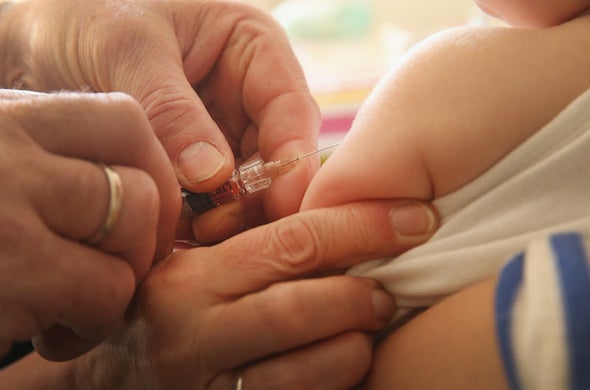Opting Out of Vaccines
Should Opt You Out of American Society
People who are able to take vaccines but refuse to do so are the moral equivalent of drunk drivers

The ongoing measles outbreaks across the United States and Europe prove definitively that our personal choices affect everybody around us. Although you have a right to your own body, your choice to willfully be sick ends where another’s right to be healthy begins. For that reason, people who “opt out” of vaccines should be opted out of American society.
This is America, the Land of the Free. That freedom, however, doesn’t mean “I can do whatever I want, whenever I want.” When we choose to live in a society, there are certain obligations—both moral and legal—to which we are bound. You cannot inflict harm or infringe on the rights and liberties of those around you.
Those obligations extend even to your constitutional rights. Although we have a First Amendment, you are not allowed to play music as loudly as you want in your apartment. Your neighbors have a legal right to peace and quiet. Even though we have a Second Amendment, you are not allowed to shoot a gun for sport in the middle of a city or town. Stray bullets are not only scary, they’re hazardous, and often inadvertently kill people.
Finally, your moral and legal obligations to the safety of others can even curtail combinations of your rights. Even though consuming alcohol and driving are both legal activities, they are not legal when performed together. Nearly 11,000 people die every year because people choose to exercise their “rights” inappropriately.
The exact same reasoning applies to vaccination. There is no moral difference between a drunk driver and a willfully unvaccinated person. Both are selfishly, recklessly and knowingly putting the lives of everyone they encounter at risk. Their behavior endangers the health, safety and livelihood of the innocent bystanders who happen to have the misfortune of being in their path.
The reasons why are simple and straightforward. Vaccines aren’t perfect (e.g., they can wear off over time) and not everyone can be vaccinated. There is one and only one legitimate reason to skip a vaccine: being immunocompromised. Some individuals, because of genetic deficiencies or diseases like cancer, cannot receive vaccines. Other people are too young. Vaccines such as MMR (measles, mumps, rubella) cannot be administered before 12 months of age. These vulnerable people rely on the responsible actions of everyone else in society to protect them, a concept known as “herd immunity.”
For their sake, we have a moral—and there should also be a legal—obligation to protect them. Everyone who can be vaccinated must be vaccinated in order to prevent the spread of disease. This is a protection we demand even for our animals: kennels will turn your pet away if they aren’t properly vaccinated and on an accepted flea treatment. There are rules we all have to play by and responsibilities we have to live up to if we want to live in a society together.
If this isn’t enough to convince a person to become fully vaccinated, then perhaps there is a solution that maintains everybody’s freedom: Anti-vaxxers can opt out of American society. No public or private school, workplace or other institution should allow a non-exempt, unvaccinated person through their doors. A basic concern for the health and safety of others is the price it costs to participate.
Is that too harsh? We don’t think so. If a person wants to blast their music loudly, shoot guns aimlessly, and drink and drive, they should be allowed to do exactly as they please: so long as it’s on their own property, sufficiently isolated from everyone else. Similarly, if you don’t want to be vaccinated, perhaps that should be allowed too, so long as you agree to permanently live out in the middle of nowhere.
It is inexcusable that society has reached this point. Many of the deadliest diseases known to mankind are due to bacteria and viruses, and dozens of them are now entirely preventable thanks to the sciences of microbiology and immunology.
People falsely believe that diseases like measles have “gone away,” but they have not. They’re always there, waiting to strike as soon as our collective guard goes down. Not so long ago, smallpox ran the risk of obliterating entire cities, while polio paralyzed large fractions of a generation. We have forgotten this morbid history because public health has been a victim of its own success.
But misinformation abounds. The internet, both a blessing and a curse, has allowed devilish lies, propaganda and a discredited fraud masquerading as science to infect the minds of millions of people. Unfortunately, there’s no vaccine that can inoculate someone against a counterfactual, unscientific mindset.
There are, however, vaccines that can prevent dozens of harmful diseases. Those who refuse, and recklessly endanger others, should be put in quarantine.
The views expressed are those of the author(s) and are not necessarily those of Scientific American.




